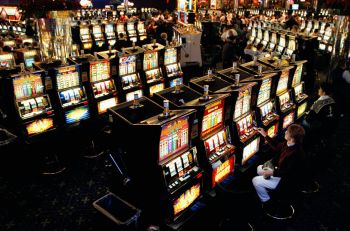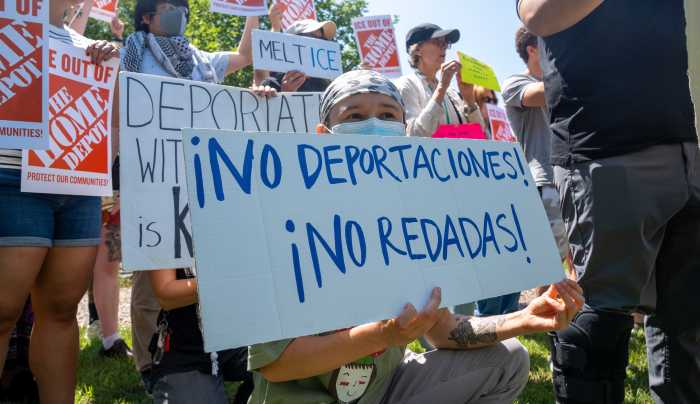
A member of the state ethics commission said Thursday that press revelations of gambling interests giving $2 million to a lobbying group that supports Gov. Andrew Cuomo as the governor pushed for casinos proves the need for greater public disclosure.
“The recent disclosures of this week have left me stunned,” said Ravi Batra, member of the Joint Commission on Public Integrity.
He referred to The New York Times report that a coalition of gambling interests called the New York Gaming Association donated $2 million in December to the Committee to Save New York. The lobbying group was formed days after Cuomo was elected in 2010 to support his policies including a tax cap, reducing public pensions and spending to help companies and repair roads in a continuing $10 million TV ad campaign that buoys Cuomo’s high popularity.
The donation came as Cuomo was planning to make expansion of casino gambling and a proposed convention center by a casino developer a centerpiece of his January State of the State speech.
On Thursday, Batra said far greater public disclosure of big-money donors to lobbying efforts are needed “rather than needing night goggles to see who donated.”
JCOPE is now forming rules that could keep donors to lobbying groups secret before June 1, the effective date of the 2011 ethics and lobbing law. That would mean donors who provided more than $17 million to the Committee to Save New York from January 2011 to June 1 this year to support Cuomo would remain secret. The law became effective June 1, a time set by Cuomo and the Legislature.
Later in the hearing, Batra said donors should be identified beginning Aug. 15, 2011, when Cuomo and the Legislature enacted the law.
“Everyone in the state of New York knew they had to keep records,” Batra said, arguing for donors to be disclosed going back to Aug. 15, 2011, when Cuomo signed the law. Batra questioned the five speakers far more than other board members combined. He raised a concern that political campaigns could use lobbying groups to launder money, for which Chairwoman Janet DiFiore, a Cuomo appointee, cut him off.
Immediately after the meeting, Batra was taken by ambulance to an Albany hospital for chest pain and fatigue. He told The Associated Press Thursday night he returned home after he was released from the hospital. He said he felt tired from late nights preparing for the hearing, but was fine. He said the pain might have been a muscle pull, but he was persuaded to go to the hospital as a precaution.
Susan Lerner of Common Cause-NY called for more disclosure, but said the way Cuomo and the Legislature wrote the law JCOPE can now probably only go back as far as Jan. 1 to force disclosure of donors.
“The public is on notice from the passage of the statute from the extensive press coverage that it received after it passed last summer,” Lerner said. “We don’t provide grace periods for other statutes we require the public to follow … why would we provide a grace period here?”
“A vigorous democracy requires an informed citizenry,” Lerner said. She said the public is left watching messages from lobbyists, such as the Committee to Save New York’s glowing TV ads of Cuomo’s policies, without knowing if they should be skeptical or accepting.
The League of Women Voters, Citizens Union, the New York Public Interest Research Group and a lobbyist representing lobbyists said the law appears to make June 1 the only fair start date. The good-government groups, which would also be subject to divulging donors, argued that some donors contributed without knowing they would be identified because JCOPE hasn’t yet set the date.
Barbara Bartoletti of the League of Women Voters, however, urged JCOPE to act quickly and start requiring donors to be identified “so the public has the idea that their voice is not being drowned out by the very big money special interests.”
“In fairness,” said NYPIRG’s Russ Haven, “the rules of the road should be in place before you are required” to disclose donors. “I think that’s the more reasonable interpretation.”
Copyright 2012 The Associated Press.


































